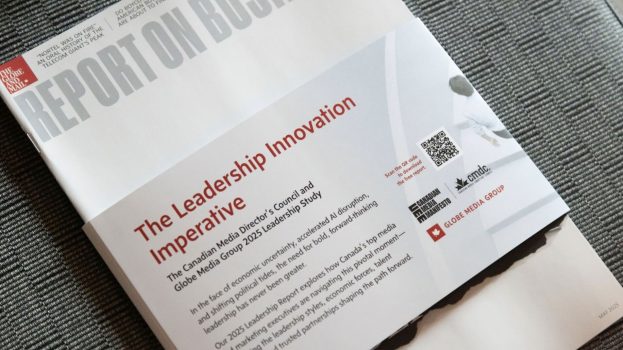Most advertising agencies do not deliver enough value to clients – not because it is difficult to do so, but because they don’t know how, or are afraid to really put their abilities to the test.
I have developed this point of view during a career in leadership or senior positions at traditional advertising agencies, including Hayhurst Communications Alberta, Strokes Design, and Parallel Strategies, that spans more than 15 years.
During my tenure I have seen far more situations where agencies have been paid well for services that were not all they could have been, than situations where agencies had an impact on a client’s business that went far beyond the cost of service. That’s a shame, because it could and should be the other way around. In my view, the culprit is the agency compensation model – a model that simply does not reward continuous improvement to the services delivered by agencies.
What do we hear from clients today? ‘My agency staff is no more advanced in their understanding of media options than my own staff.’ Or, ‘the services my agency provides cost too much when compared to the results they deliver for my business.’ Sure, in some instances agencies deliver services absolutely critical to client success or even survival. But such outcomes are too often the exception, not often enough the rule.
When I joined the industry, agencies were frequently compensated based on a percentage of overall account spending – frequently through media commissions. The bigger the account, the more the agency made. I’ve watched that compensation model shift to one that favours paying agencies for the time they spend on campaigns – delivering fairly consistent margins to agencies regardless of the size of the account (to a point).
As I watched this change, I thought it was smart. Logic told me that commissions paid agencies too handsomely, and that a day’s pay for a day’s work made much more sense. I was dead wrong! The outcome, in fact, has been to water down agency abilities and remove the one incentive that was in place for agencies – very good margins if they were successful at winning and retaining business.
The investment banking industry runs on a different system that does link rewards to results. Corporate finance departments are rewarded with a big fee when they successfully complete a financing. They get paid based on their success, not based on the time they put in. They often do very well financially as a result. And why not? They are playing an important, sometimes critical, role in ensuring the success of the businesses they serve.
In my view, the only acceptable agency compensation model is one that requires us to tie a major component of compensation to clients’ business performance. Such models will ensure agencies hire and compensate the very best professionals who in turn will focus clearly on the most important element – delivering results for clients instead of hours of work or outside billings to agencies.
For years agencies and clients have kicked around performance-based models – often establishing benchmark measurements on such factors as awareness, then basing payment on moving these yardsticks. However, there has always been a reluctance to tie measurement directly to sales or market share growth – with agencies arguing that such outcomes lie beyond the direct result of their efforts. Such reluctance makes performance-based models little better than the compensation model currently being employed.
Why do I say this? Because ultimately what matters in business is market share and sales growth, not improved awareness levels or other feel good measurements. I watched one performance-based model reward an agency for doing a fabulous job of improving awareness – just in time for the client to announce its largest losses ever.
People argue the agency should only be paid performance fees on what it can measurably impact – awareness, for example. Nonsense. The companies we serve only benefit from our work if we consistently apply best practices on their behalf and ultimately deliver results that allow them to outperform their competitors. In short, we should win if they win, and importantly: we should lose if they do. That way we will feel their successes and losses in a manner that will drive our conduct as true business partners.
Partnership is the key. The only way I know to be a true marketing partner with a client is to be married to their performance – across the board. That means we have to be prepared to make no profit, or to lose money, if our efforts are unsuccessful. Such an approach will ensure our relevance for a long time to come.
Rich Thompson heads up Zero Gravity in Calgary, which focuses exclusively on payment-by-results services. He can be reached at Rich.Thompson@zginc.ca.























